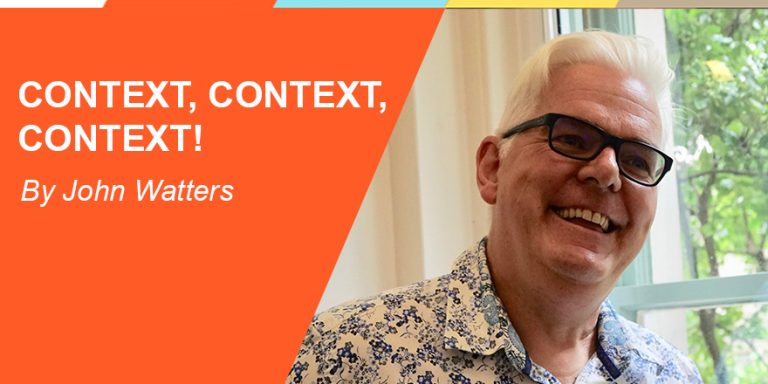Why Holons matter in Organisational Development: Stacey and Oshry
A colleague of mine recently sent me complexity theorist Ralph Stacey’s short video on the paradoxes of organisational life, and the importance of taking experience seriously.
Some of Stacey’s ideas resonate with me so I posed a question to Barry Oshry about what he thought of Stacey’s notion of organisations as “complex social processes of relating between people“. I have worked in partnership with Barry for nearly 20 years and introduced Oshry’s system leadership work to Europe.
Barry’s response was interesting: “What seems to be missing (from Stacey’s definition) is seeing organisations as whole organic entities, and organic entities within organic entities: living wholes with adaptive processes. Also, to describe an organisation as this or that, is simply a framework. It rises to theory when it enables you to both describe and predict”. Barry referred me back to Arthur Koestler work on holons. Barry highlighted the distinction between parts and wholes and “the two phases of our existence; one, when we function as independent wholes, going about our separate business; and two, when we function as interdependent parts in some large whole. We function as wholes and we function as parts of wholes. Amebocytes and slugs, holons, individuated and integrated, sometimes this, sometimes that”.
Barry Oshry has recently published another book, The Systems Letter. I particularly appreciate its clarity on theory, particularly his understanding of holons; grasping the nature of holons could change everything. I find Ken Wilber’s explanation of holons also illuminating: “Reality is not composed of things or processes; it is not composed of atoms or quarks; it is not composed of wholes nor does it have any parts. Rather, it is composed of whole/parts or holons. This is true of atoms, cells, symbols, ideas. They can be understood neither as things nor processes, neither as wholes nor parts, but only as simultaneous whole/parts, so that “atomistic” and “wholistic” attempts are both off the mark. Before an atom is an atom, it is a holon. Before a cell is a cell is a holon. All of them are wholes that exist in other wholes, and thus they are all whole/parts, or holons, first and foremost. Likewise, reality might indeed be composed of processes and not things, but all processes are only processes within other processes – that is, they are first and foremost holons”.
I read Barry’s Systems Letter book several times and wrestled to grasp its essential core and how it relates to other OD/systems maps like Stacey’s. I know this may seem abstract and theoretical to some reading this post. And yet as Kurt Lewin, one of the founding fathers of Organisational Development said in the 1940s, “There’s nothing so practical as good theory – because good theory guides effective action by turning knowledge into wisdom.”
As well as going back to holons, Barry also highlighted that in our engagement with the world (our Work) there is a distinction again between two phases of existence: “When we are a passionate participant (both words are important) in the event, and when we are a dispassionate observer of the event… The whole story remains invisible to us unless we are able to move back and forth between being the passionate participant and the dispassionate (systems-wise) observer”.
What does this mean for the work we do with our clients?
LOOK AT NOTHING IN ISOLATION: we remember the part/whole fundamental nature of reality e.g. never do work with an Executive Team without seeing the pattern of relating and of processes with its wider system (the Board and the Team’s direct reports and the wider ecosystem). Understanding context includes the temporal, spatial, relational and process dimensions of the situation, to summarise the key elements in Barry’s Seeing Systems book.
BE A PASSIONATE PARTICIPANT: in life, recognise the important part of the whole that you are, and remember you are embedded in systems upward, downward and laterally. You are being shaped by that system and shaping it, in this dance we call life.
STAND BACK AS THE DISPASSIONATE OBSERVER: there is a bigger story playing out larger than just the drama of your own life. Situate your experience within that bigger context. If every universe was a pea, the Royal Albert Hall in London (one of our grand venues), would be filled with peas. The cosmos is vast; humility and awe can give us a sense of perspective. Yet as far as we know humans are the only creatures to be able to reflect on ourselves and the cosmos as a system.
Future Considerations leads public programmes with the aim of exploring different topics including organisational systems and complexity. One popular workshop is Barry Oshry’s Organisation Workshop [caldera_form_modal id=”CF59ddd7229baa5″]Click here to keep in touch and find out when our next events will be taking place.[/caldera_form_modal]
John Watters is an Associate of Future Considerations and the leading authority in Europe on Barry Oshry’s systems leadership work. He has worked in partnership with Barry Oshry for nearly 20 years years and is a Senior Associate of Power+Systems. He specialises in working with complex challenges that involve multiple stakeholders; creating the conditions for fundamental shifts in performance and realising personal and organisational purpose.





I like the thinking in this article. In some ways it is coming very close to the rabbit hole of non-duality. In Advaita (not two) the distinction of whole / part cannot exist. There is only One. I’ll leave that there. For participants in an organization, as we know, they typically only experience their part of the system, from their limited individual perspective. “If only the other parts would cooperate with my perspective, all would be well.” Oshry’s work provides a pathway for people to experience the system from multiple, diverse perspectives at the same time. For at least a moment, participants “get” that they have been deluding themselves, viewing the organization through a subjective pinhole. As Barry says, the Organization Workshop experience “shines a bright light on partnership” and for many, once they “see” partnership from a systems perspective, they can’t “un-see” it again and go back to the the old way of seeing. In my experience, Barry Oshry’s work is pure ontology, brought to life in a vivid experiential format.